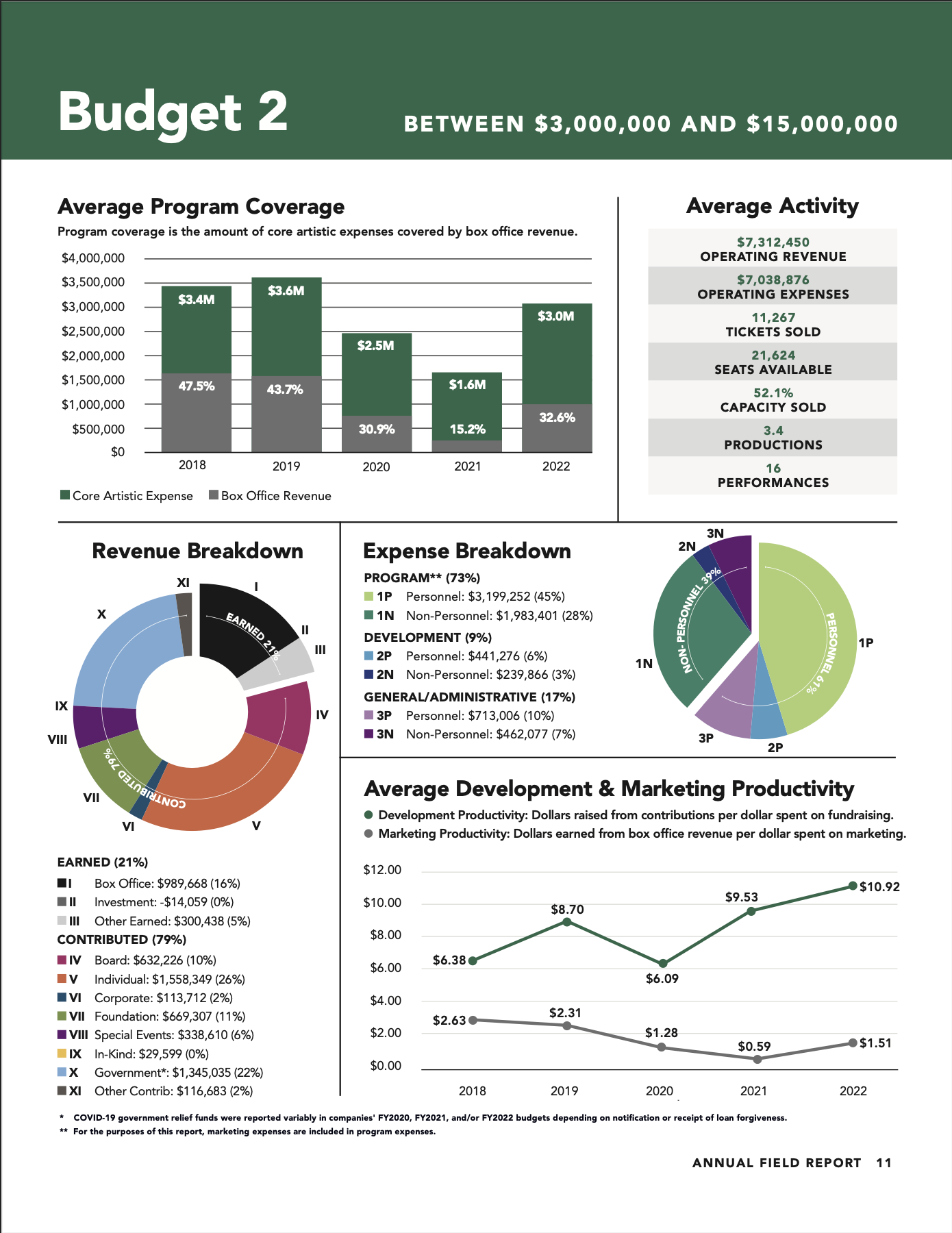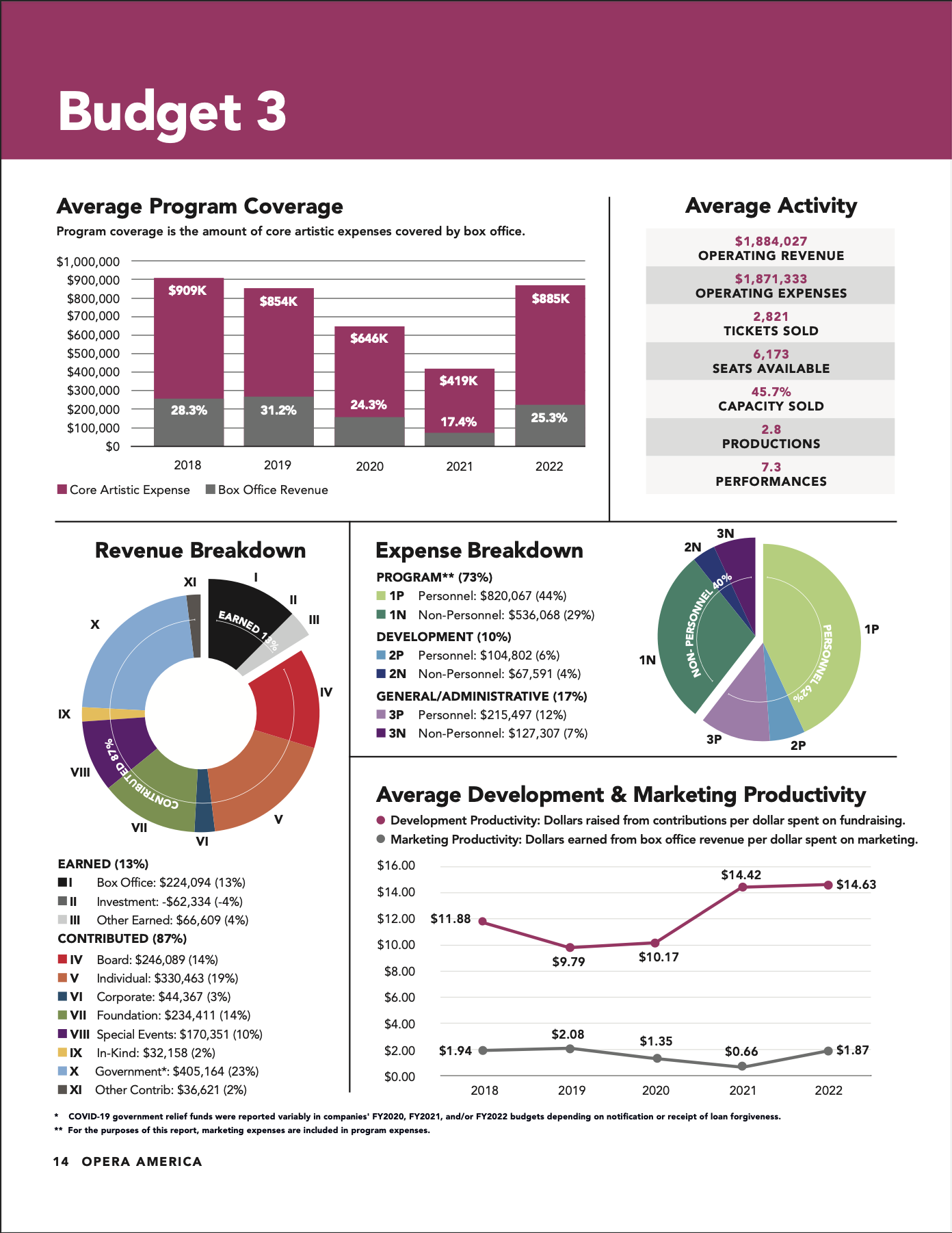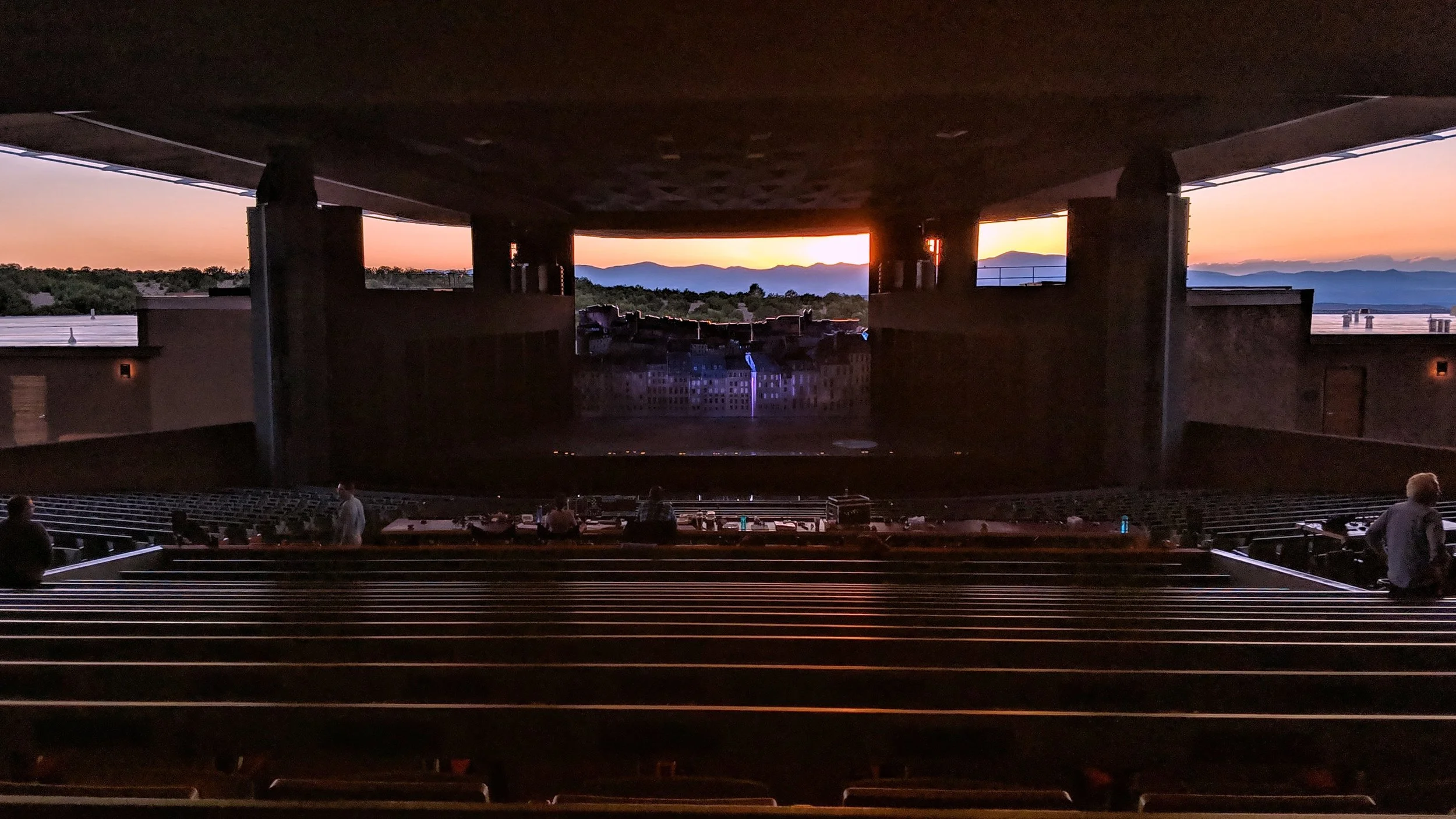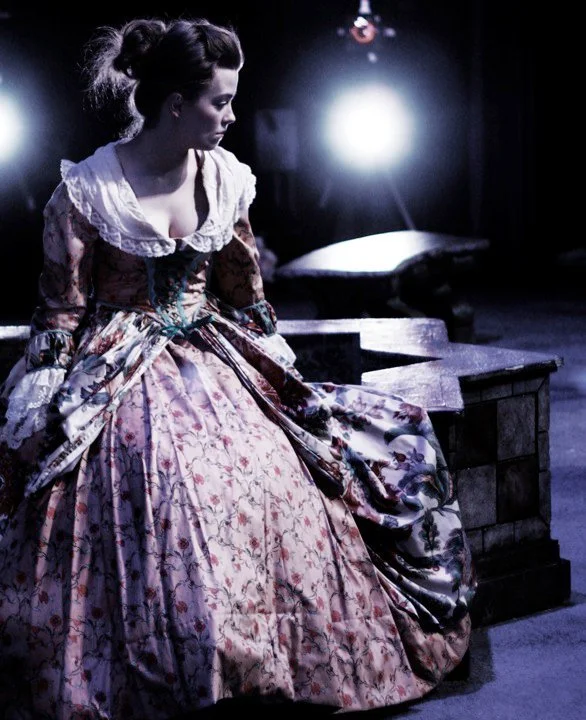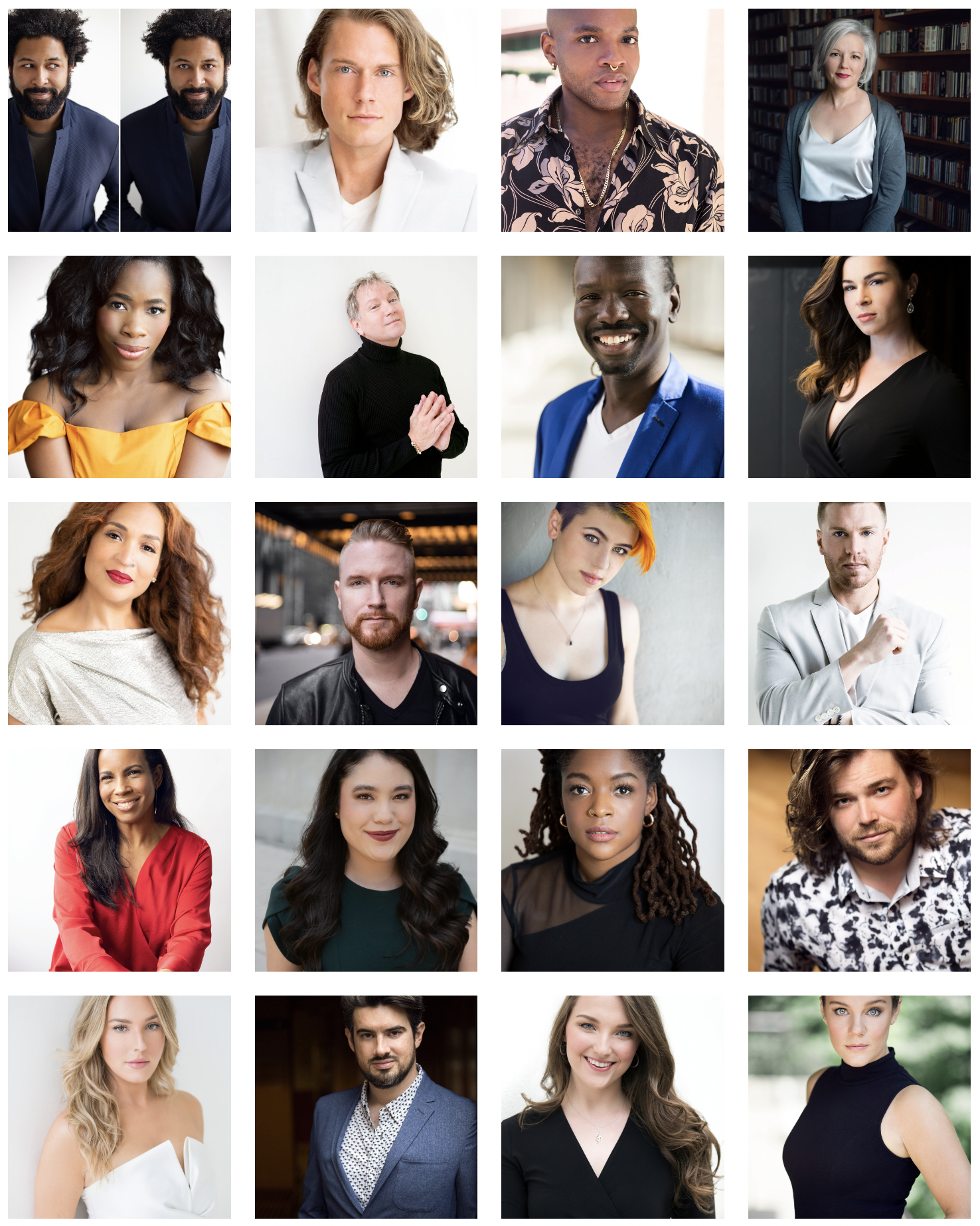
OPERA SINGER 101
WHO
Who are professional opera singers? They’re paid artists who sing in a classical, full voice style, predominately without amplification, performing roles with a professional production company. Often they are well-trained and have multiple degrees in opera performance.
There are over 10,000 classical singers studying in the USA at any time, with about 2500 graduating per year.
1200 available roles per season in the USA.
WHAT
…does a professional opera career look like?
TOP 6 TYPES of GIGS
STAGED ROLES
CONCERT ROLES
CONCERT APPEARANCES
COVERS
CHORUS
MULTIMEDIA
TOP 6 TYPES of GIGS (details)
STAGED ROLES
avg. 2-8wks on site.
Travel stipend & housing for non-locals
Per Diem (contract contingent)
Rehearsals (music)
Rehearsals (staging)
Rehearsals (tech)
Rehearsals (dress/open dress show)
Performances (1-12 performances)
CONCERT ROLES
avg. 2wks
Travel stipend & housing for non-locals
Minimal rehearsal time, minimal budget
Performances (1-3)
CONCERT APPEARANCES
avg. 3-7 days
Travel stipend & housing for non-locals
PAY SCALE
STAGED ROLES
starting out
$500-$1500 per contract
mid level regional work
$1500-2500/performance (2-3 perfs)
(25%-50% for covers, extra if you go on)
Tier 1 House
$1200-5000/performance (covers & comprimarios)
$4000-15,500/performance (principals)
CONCERT ROLES
$500-15,000 per contract
CONCERT APPEARANCES
$500-$300,000 per appearance
CHORUS
Tier 1 - $65,000-$130,000 annually
Tier 2 - $40,000 annually
MULTIMEDIA
varies dramatically, could include residuals
COVERS & COMPRIMARIOS
These are often lumped together in discussions, not because they’re similar, but because every company is different.
Comprimarios - the schedule could be similar to the principals, or you could be called later and for fewer rehearsals. It depends dramatically on the company and the show.
Covers - Often called to the same schedule as principals. We can discuss Leah’s blog post here.

where
OPERA HOUSES
TIER 1 - ANNUAL BUDGET OVER $15,000,000
TIER 2 - ANNUAL BUDGET $3mil-$15mil
TIER 3 - ANNUAL BUDGET $1mil-$3mil
TIER 4 - ANNUAL BUDGET $250k-$1mil
WHEN
TRADITIONAL OPERA SEASON
The traditional opera season runs along the standard American scholastic season: September to May
FESTIVAL OPERA SEASON
Companies like Santa Fe Opera, Glimmerglass, and Wolf Trap Opera are primarily Summer season companies: May to August. Pay to sing/YAPs apply.

how
-
Training programs are designed to give you tools to build your career. They’re a place to be educated by individuals you trust, who have a good knowledge and reputation in industry.
-
These are performance-heavy programs where you learn 1-3 roles and perform them for an audience. The music and performances are the priority, though occasionally they come with some educational contingent.
-
Most artists self-manage when starting out. They use tools like YAPTraker and Stagetime, or research companies directly to discover opportunities. Networking and social media play large roles in creating the career you want.
-
In time, you’ll grow to the point you have a professional brand and identity strong enough that you can get management to represent you. They open doors and network on your behalf, as well as help guide your career.
-
It is easier now than ever before to create opportunities from scratch. Utilizing multimedia, social media, and networking, you can collaborate or self-produce to put yourself on the map, or at least on the radar of important industry figures.
TRUTH about YAPS/RAPS
everything they don’t want you to know, but you should
WHAT THEY’RE SUPPOSED TO BE
a bridge between academia and the professional world
a place to develop young/emerging voices
an opportunity to highlight new and interesting talent
a place to hone rep and artistry
a place to train you with “real world” experience
WHAT THEY really are
their own subculture of production company with their own agenda
a cycle of underpaid opportunities that work like corporations. Resident artists are given “opportunities” to perform roles that would normally go to higher paid artists.
a place to give opportunity to “pedigree artists”
a place to give singers rep that may be very wrong for them
a place that works opposite from the “real world.”
ARE YAPs WORTH IT
YAPs can be worth it if you enter them with your eyes open, understanding that you are a cog in the machine and not the focus of their attention, and that what a YAP says it is and what it really is are different things. YAPs can allow you to develop yourself as an artist if you insist upon doing so on your terms, and are proactive. They can provide some stability and consistency, as well as unique networking opportunities. They can open significant doors if everything aligns right. But you are the one who makes or breaks your career…not the programs you’re in nor the gigs you receive.
If you lack the “pedigree” of a top 10 vocal school or very specific vocal teachers, it is exceptionally difficult to be noticed and taken seriously. This means that being unique and offering something off the beaten path will force their attention and make you be noticed. THAT is why I’m here at TOI. THAT is why you’re in this room now.
differences between yaps & mainstage
YAPs get the most bang for their buck by getting singers who can perform a little of everything but are not niche or specialized voices. MAINSTAGE wants niche singers who are specialists in one or two things.
YAPs are often salaried with insurance. MAINSTAGE is often contract work per gig, no insurance, and very little job stability until a working relationship is established
YAPs rarely let you “say no” to casting or appearances, and artists are bound to do whatever the program asks. MAINSTAGE lets you shape your career by choosing what to audition for and focusing on YOUR needs ahead of anyone else’s

Make it stand out
what’s next
you’re here in this training program to get the tools to help you shape your career.
This means real talk, hard truths, and open eyes in order to know what you’re getting yourself into.
This is show business.
Don’t let any classical musician tell you otherwise. If you want to work in show business, if you love this art form, and you are ready to put in the work to be known, then this is absolutely a path I recommend.
We’re here at Taos Opera Institute to help you succeed. Over the next couple of weeks, we’re going to talk about each tool needed to give you the best career path possible.
My job is to take niche and make it strategic, marketable, desirable, hirable, and future-proof.
You each have a unique instrument and skillset that can be used to develop a career…if you didn’t you wouldn’t be in this room. If didn’t believe it, I wouldn’t be in this room.
BRAND STRATEGY
-
What is a brand?
How is an artist a brand?
How can you harness this perspective in your favor?
NECESSARY MEDIA
-
media every pro needs, what those pieces are composed of, and how to get them
(website, headshots, audio, video, social media)
SOCIAL MEDIA 101
-
How social media fits into the opera industry, best practice, and how to harness it fo recognition in a niche industry
On-Camera
-
How to shoot your own audition submissions and general on-camera work, with examples.
managing a career
-
Daily career advice, business acumen, networking, and creating opportunity from scratch.
masterclass: REPRESENTATION
-
What is management?
What do they do?
How and when do I contact them?
Mock management auditions with live singing and interviews.
Services
offered
headshots
1:1 headshot sessions
radically discounted from my NYC prices!
$275
career consulting
1:1 bespoke career strategy sessions to help you self-actualize and achieve your artistic goals.
$95







